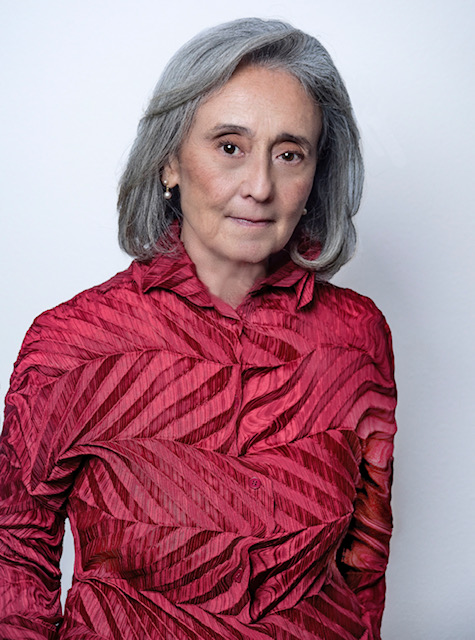Michele S. Riley FCIArb
Ms. Riley has over 30 years of international legal experience from working with international law firms in New York and Tokyo, Japan, specializing in commercial transactions and ADR processes, both in private practice and as general counsel of a U.S.-based subsidiary of a Japanese multinational. Ms. Riley serves as a CPR Distinguished Neutral, and is on ICDR’s international panel, AAA’s commercial arbitration and mediation panels, and the mediator panel of a U.S. federal appellate court. Complementing her ADR practice, Ms. Riley teaches mediation and negotiation at Columbia University’s International Center for Cooperation and Conflict Resolution.
What is the best thing about being a Member/Fellow of the CIArb?
As a Fellow of the CIArb, I was offered and accepted the opportunity to become a member of CIArb’s Examinations Board.

The responsibility of the Board is, among other things, to help the Education and Membership Committee with regards to maintaining qualifications for membership and fellowship in CIArb as well as setting professional standards for the ADR field. The work of the Board has given me the opportunity to interact with CPR’s staff and fellow members who bring a wealth of diverse experience to the work of the Board. As a Fellow, I have also had the opportunity to serve as a co-director of the Accelerated Route to Fellowship Program offered by the New York Branch.
Are there any developments in the field of ADR which you consider to be current “hot topics”. What is your opinion on them?
Globally, a current ‘hot topic’ is subscription to the United Nations Convention on International Settlement Agreements Resulting from Mediation (the “Singapore Convention”). I believe that the Singapore Convention will make mediation more attractive to disputing parties by enabling them to enforce more easily settlement agreements across borders. As a result, businesses may increasingly view mediation as viable dispute resolution alternative to litigation and arbitration in settling cross-border disputes.
Are there any interesting developments in ADR in the jurisdiction where you are based?
There are several issues that have been under discussion in the arbitration community in New York recently: (1) the standards (both official and unofficial) used by arbitrators in emergency relief and interim measures applications, and (2) the functus officio problem in modern arbitration and a proposed solution.
In terms of diversity in the legal profession, do you feel that you have seen real change? What more still needs to be done?
There has certainly been an increase in diversity in the legal profession, specifically in arbitration, as measured by the number of women and members of underrepresented groups who have joined the panels of various ADR providers. These ADR providers now go beyond this number and measure their performance not only in terms of the number on their institutional panels but also the number who are actually appointed to arbitration panels. What still needs to be done is for ADR providers to tie diversity to the size of the claims submitted to arbitrators. In other words, how many women and members of underrepresented groups are appointed to panels where the amount of the claim(s) asserted exceeds US $100 million? Are women and such members largely found only on panels hearing relatively small claims?
Would you encourage a young legal professional to develop skills in the ADR field? What advice would you have for them?
My advice for young legal professionals is start developing your skills in ADR early in your career and concurrently with your legal practice. Don’t wait until you contemplate leaving the practice of law to join your local ADR community, receive training in ADR and find opportunities to observe how ADR professionals employ their skills in arbitration and mediation.
Tell us about your interests, hobbies or activities outside of work.
Combining my love of travel with my interests in ADR and bringing the field to other attorneys, I have been fortunate to serve as a volunteer for the International Legal Institute — African Center for Legal Excellence. In that capacity, I have provided training in international commercial arbitration to state counsel from the Attorney General’s Chambers, Botswana annually in 2015-17 and 2019, and administrators at the Nairobi Centre for International Arbitration, Kenya in 2018. Under the auspices of the International Senior Lawyers Project, I have also assisted an NGO, in partnership with the University of Lagos, in developing a Master’s degree program in negotiation and conflict resolution at a newly-established College of Negotiation in 2014. I hope to take up travel and training abroad again post-pandemic.
Tell us a short war story from your arbitration experience.
While this is not a specific war story, based on my experience with tiered or multi-step ADR clauses which require the parties to mediate their dispute before proceeding with arbitration, I have a general observation: In the mediation phase of most commercial disputes , litigators represent the parties to the dispute. I think that the success rate in reaching mediated settlements might be higher, and perhaps better outcomes could be attained, if transactional lawyers served as advocates for the parties. After all, commercial mediation is essentially a business negotiation facilitated by the mediator. This representation is unlikely to change because parties who find themselves in a dispute understandably retain a litigator in anticipation of litigation or arbitration.